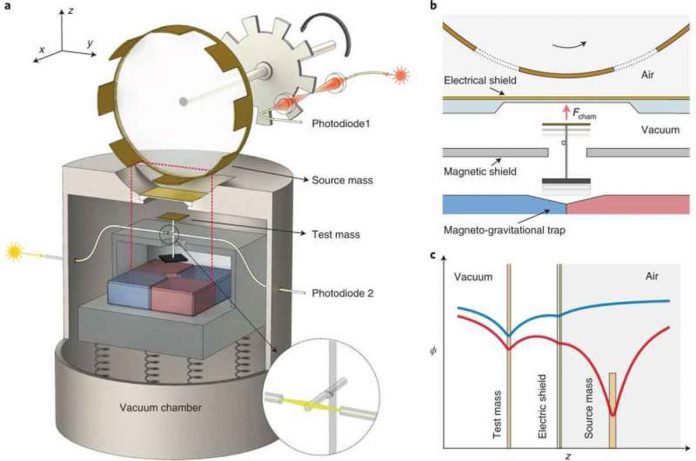A team of Nanjing University researchers, working with two colleagues from the University of Science and Technology of China, conducted new tests of the chameleon theory and found no evidence of a fifth force. They published their findings in the journal Nature Physics.
Previous research has suggested that there is a mysterious force acting on the universe—dubbed dark energy by theoretical physicists as a way to explain why the universe is expanding at an accelerating rate. Despite considerable effort, no one has been able to demonstrate the existence of dark energy. According to the chameleon theory, objects affected by gravity can behave in ways that change depending on their surroundings. As a fifth force, the theory includes the concept of a chameleon field. The theory has sparked heated debate because it directly contradicts general relativity, which states that gravitational forces should be constant.
The researchers used a levitated force sensor—a wheel-shaped device with plastic fins attached to those spins past a thin film sitting atop a magnetically levitated piece of graphite—to either prove or disprove the theory. Springs support the base beneath the graphite. The goal is to put to the test the theory that gravity exerts varying amounts of force depending on the density of objects in its vicinity. The chameleon field would exert less force in a dense environment, such as on a single planet, than it would over a large, less dense swath of space. If there is a fifth force, the spinning films should exert a periodic force on the levitating film.
After repeating the experiment, the researchers found no evidence of the spinning fins impacting the levitated film, thereby ruling out the chameleon theory as an explanatory candidate for dark energy. They also argue that their methodology emphasizes the importance of rigorous, lab-based testing for validating or discrediting theoretical research. They suggest that their methodology could be applied to other endeavours.

